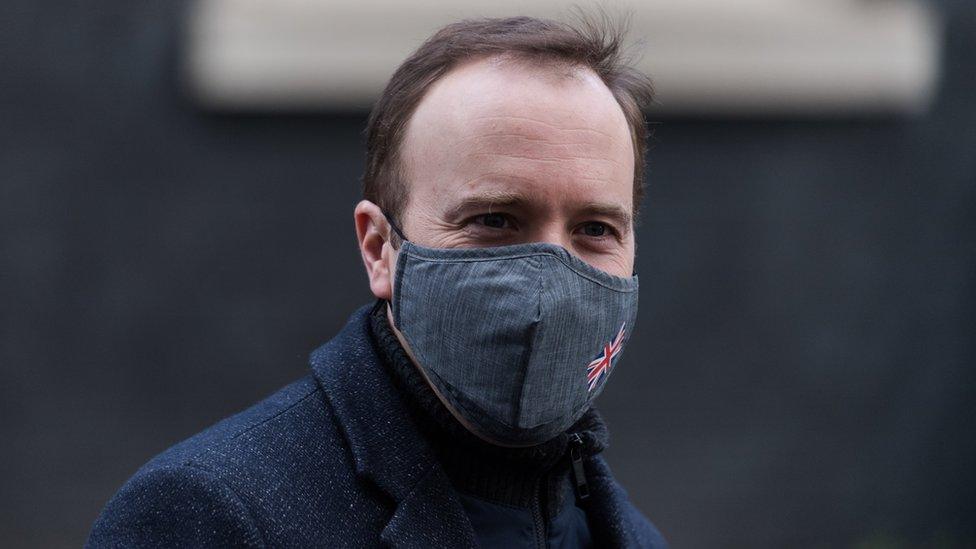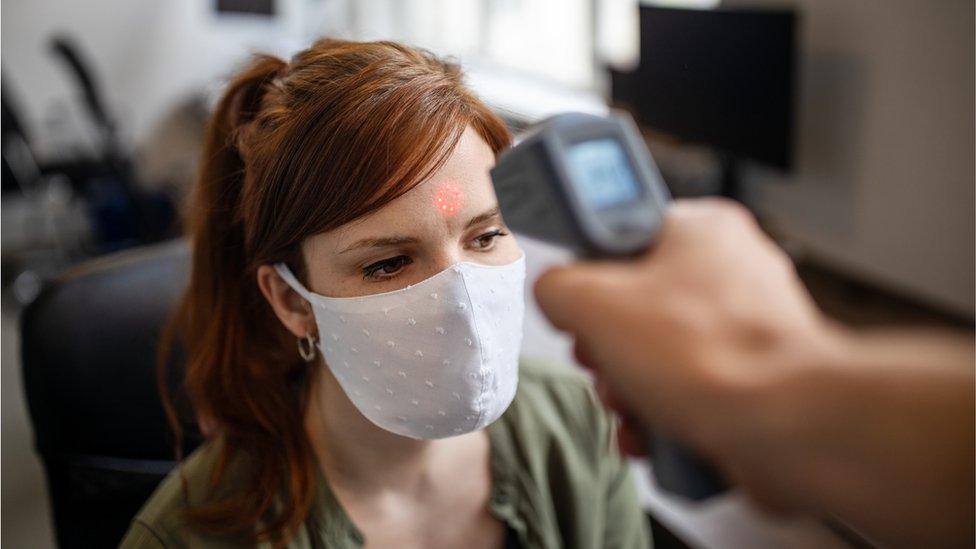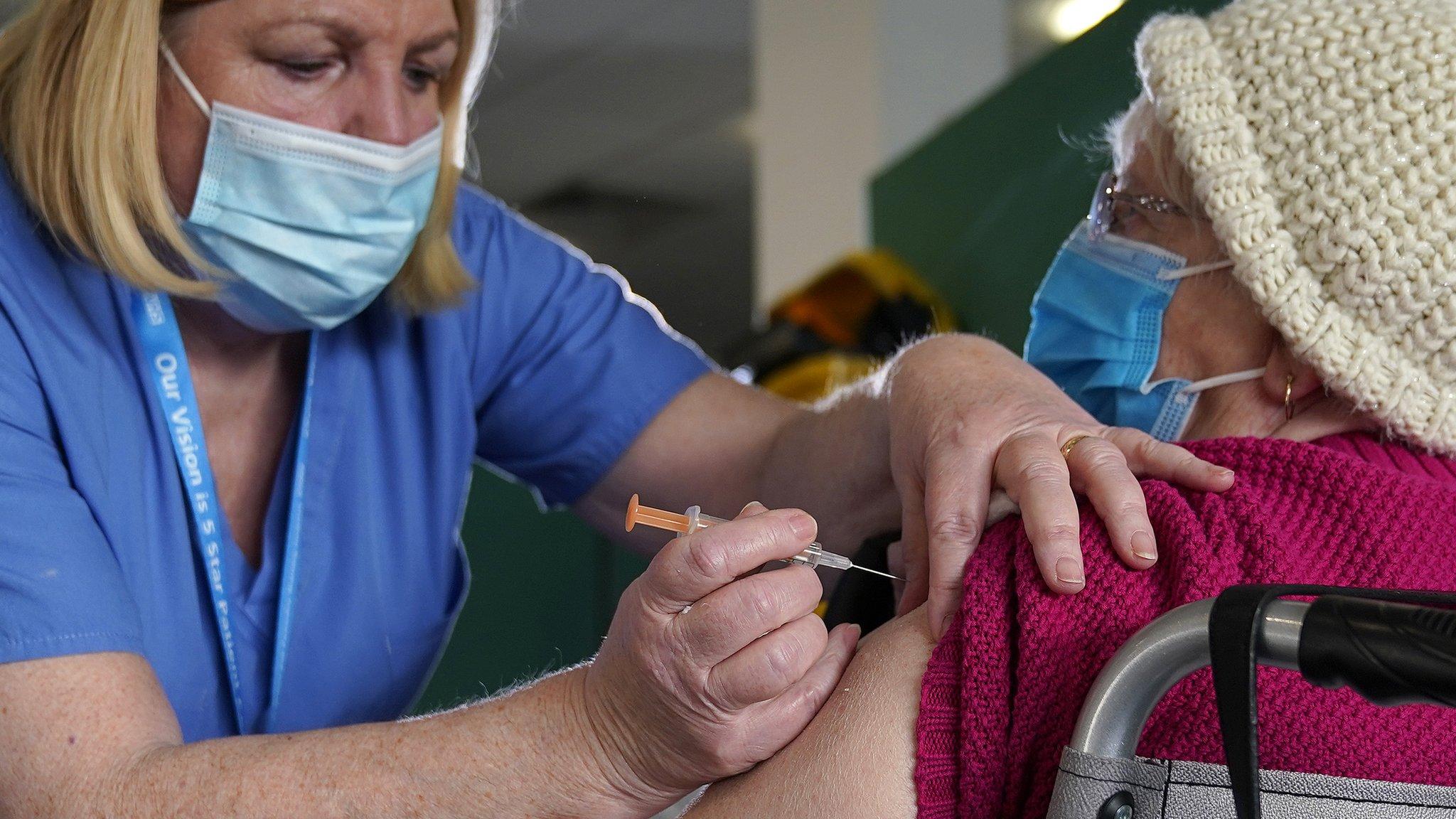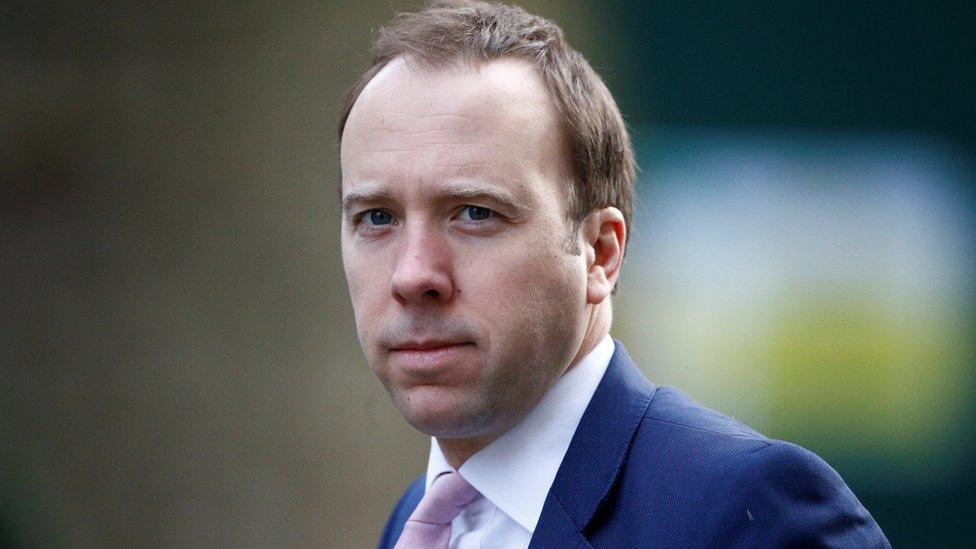Covid: Health secretary Matt Hancock self-isolating after app alert
- Published

Health Secretary Matt Hancock has said he is self-isolating after being alerted by the UK's NHS Covid-19 app.
The West Suffolk MP said self-isolation was "perhaps the most important part of all the social distancing" and urged others to do the same if contacted.
In a tweet, Mr Hancock said he would be working from home until Sunday, adding "we all have a part to play in getting this virus under control".
He contracted coronavirus in March 2020 and suffered "mild symptoms".
Mr Hancock said he learned from the app he had been "in close contact with somebody who's tested positive" and so self-isolating was "how we break the chains of transmission".
"So you must follow these rules like I'm going to," he said. "I've got to work from home for the next six days, and together, by doing this, by following this, and all the other panoply of rules that we've had to put in place, we can get through this and beat this virus."
Mr Hancock said he was alerted by the app on Monday night, having earlier led a Downing Street press conference alongside NHS England medical director Prof Stephen Powis and Public Health England's Dr Susan Hopkins.
The NHS app tells a person if they have been in close contact with someone who has later tested positive for coronavirus and tells them to isolate for 10 full days from their last contact.
While it is not clear from Mr Hancock's statement if his isolation ends on Sunday or Monday, his period of quarantine suggests he was last in contact with the person who was infected on Wednesday or Thursday.
Allow X content?
This article contains content provided by X. We ask for your permission before anything is loaded, as they may be using cookies and other technologies. You may want to read X’s cookie policy, external and privacy policy, external before accepting. To view this content choose ‘accept and continue’.
Downing Street confirmed that Mr Hancock would not receive the vaccine early because he is leading the pandemic response.
The prime minister's official spokesman said: "The PM and the rest of the cabinet will take the vaccine when it's their turn to do so based on the priority lists that have been published.
"We don't think it's right that the PM or other members of cabinet take the vaccine in place of somebody who is at higher clinical risk."
In March, the health secretary revealed he had tested positive for Covid-19 shortly after Prime Minister Boris Johnson had confirmed he too had the virus.
While the health secretary recovered fairly swiftly, and was able to work from home during his illness, Mr Johnson required hospital treatment.
Covid symptoms: What are they and how long should I self-isolate for?
Self-isolation, which means staying at home and not leaving, is a legal requirement for anybody who has Covid symptoms, has tested positive for the virus, lives with someone who has symptoms, has arrived from abroad or has been contacted by NHS Test and Trace.
In December, the self-isolation period required was cut from 14 days to 10 days.
Using Bluetooth technology the NHS app makes contact between mobile phones when they are near each other, if an owner of a phone later tests positive for the virus and shares that with the app, alerts are sent to anyone who is deemed to have been a close contact.

RUPAUL'S DRAG RACE UK: Mama Ru's back with 12 fabulous drag queens. Who gets the crown?
DEATH IN BOLLYWOOD: How did Jiah Khan die? For her family, the truth about her death still hasn’t come out

Related topics
- Published19 January 2021

- Published18 January 2021

- Published31 March 2020
